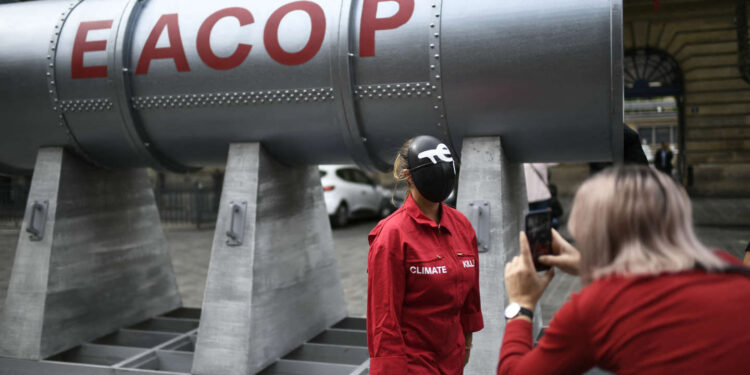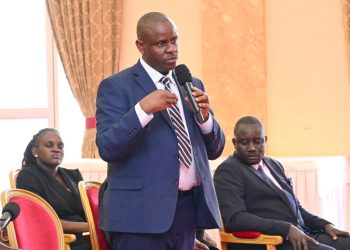Uganda is in the final stages of negotiations with Chinese financiers to secure funding for the East African Crude Oil Pipeline (EACOP) project, which has faced opposition and the withdrawal of some Western partners.
Irene Bateebe, permanent secretary at the energy ministry, stated that they are in the process of concluding arrangements with Chinese financiers and anticipate reaching an agreement in the coming month (October).
The EACOP project, led by French energy company TotalEnergies, aims to develop Ugandan oilfields and transport the crude through a 1,445-kilometre pipeline to a port in Tanzania.
Despite opposition from human rights groups and environmental activists who argue the project may harm fragile ecosystems and the livelihoods of local communities, the Ugandan government is committed to proceeding.
TotalEnergies asserts that those affected by the project have been fairly compensated, and measures are in place to protect the environment.
Irene Bateebe emphasized the importance of the project for Uganda and mentioned that some European partners withdrew from financing the project, prompting the country to seek alternative sources of funding, including Chinese financiers.
Uganda is in discussions with two Chinese financiers, the Export-Import Bank of China and Sinosure. TotalEnergies holds a 62 percent stake in the pipeline, with Ugandan and Tanzanian state-owned oil companies each having a 15 percent stake, and China National Offshore Oil Corporation holding eight percent.
The EACOP project is part of a $10 billion initiative to develop oilfields in Lake Albert, located in northwestern Uganda, and export the crude to international markets via the Indian Ocean port of Tanga in Tanzania.
The lake contains an estimated 6.5 billion barrels of crude, of which around 1.4 billion barrels are considered recoverable. Uganda expects its first oil to flow in 2025, almost two decades after the reserves were discovered, and it is seen as an economic opportunity for the country.

































































